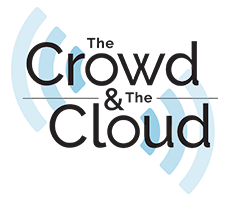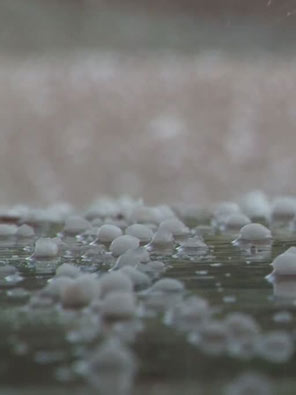
Newsletter
Sign up and stay in-the-know about The Crowd & The Cloud and the world of citizen science.

In Episode 1, The Crowd & The Cloud interviews citizens committed to gathering weather data. Scroll down to learn more about the people and projects featured in this segment.

Volunteers report weather conditions across the North American continent to fill in missing data and confirm radar reports.
The grassroots, non-profit organization CoCoRaHS began in 1998 at the Colorado Climate Center of Colorado State University. The acronym stands for the Community Collaborative Rain, Hail and Snow Network, and that’s exactly what it is! It’s a community based volunteer network made up of all kinds of different people throughout North America, who work together to measure precipitation. Everyone can participate, all that’s needed is enthusiasm to report weather conditions and a willingness to learn. CoCoRaHS provides low cost tools for measurement ($30 for a standardized rain gauge) and complimentary in-depth online training, so volunteers are ready to share high quality data with others online and over coffee. This data is used for several applications including in natural resources, education, and research.
Volunteers take measurements of precipitation from their own backyard, be it rain, hail, or snow. The measurements from thousands of volunteers are recorded online where the data is displayed for use in various applications. Observers are also trained to report extreme weather events, such as large hail, in real time, and those reports can sometimes trigger Alerts and Warnings from the National Weather Service. From water resource analysis to storm warnings, and even neighborly competition over who received more snow, the data can be applied to daily situations. Many organizations and individuals depend on CoCoRaHS to provide precipitation data. This includes the National Weather Service, meteorologists, hydrologists, city and utility managers, and even outdoor enthusiasts and teachers. Whoever needs the data can access the data and use it, it’s that simple.
By volunteering to provide daily weather observations, observers become part of a huge network that allows important contributions towards helping others. They can make new friends in this network that share similar interests in volunteering and learning about the weather, through training sessions and field trips. In some areas, people even hold pot lucks and photography contests, which sounds pretty fun! The whole purpose is to contribute towards advancing scientific knowledge about weather, and learn about how it impacts communities.
More than 10,000 volunteers take daily weather observations at National Parks, seashores, mountaintops, and farms as well as in urban and suburban areas.
https://www.ncdc.noaa.gov/data-access/land-based-station-data/land-based...
When drafting the Declaration of Independence, our founding fathers probably had more on their mind than the weather... Actually, that's not entirely true.
Newly revised edition of the most readable guide to our nation's weather. It also includes an updated state-by-state guide to weather patterns and scientifically accurate records.
https://www.amazon.com/Weather-Book-Easy-Understand-Guide/dp/0679776656
Think you need a degree in science to contribute to important scientific discoveries? Think again.
https://www.amazon.com/Citizen-Science-Ordinary-Changing-Discovery/dp/14...
